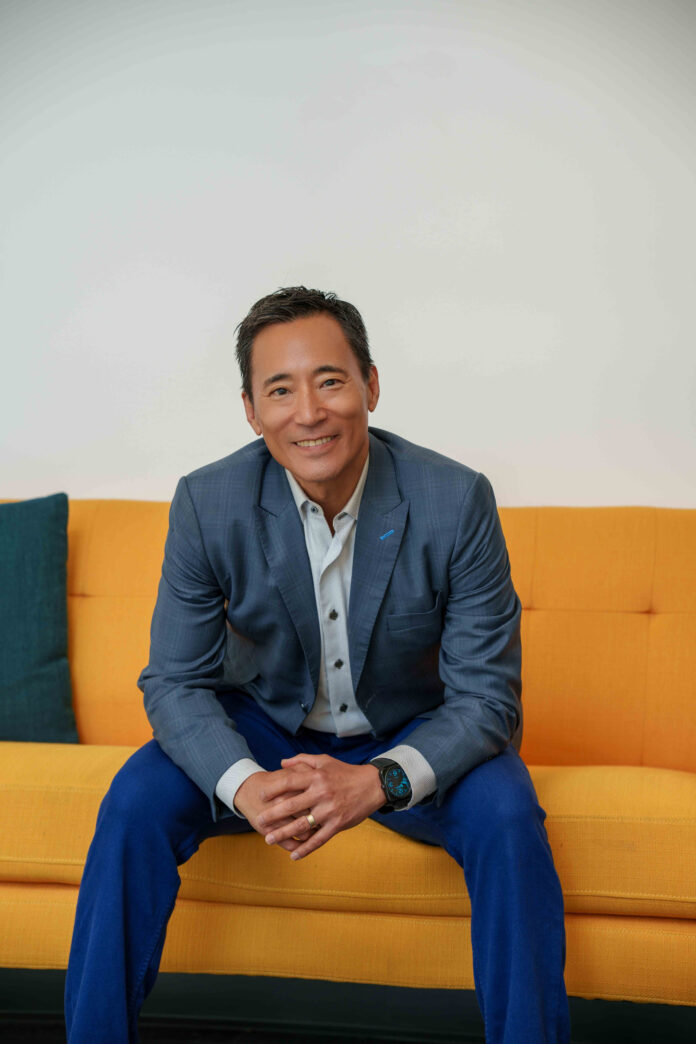SAN FRANCISCO — Synthetic Design Lab, a biotech startup focused on next-generation antibody-drug conjugates (ADCs), emerged from stealth mode on Tuesday with $20 million in seed funding. The company is developing its proprietary SYNTHBODY™ platform, which it claims can deliver cancer-fighting payloads with 10 times greater precision than current ADCs. Clinical trials are expected to begin in 2026.
The financing round was led by Playground Global and Godfrey Capital, among other investors. The funding will support the advancement of Synthetic Design Lab’s lead therapeutic candidates and the continued development of its SYNTHBODY platform for a wide range of solid tumor indications.
The company is helmed by founder and CEO Dr. Daniel S. Chen, a recognized leader in cancer immunotherapy and protein engineering. A former Genentech executive, Dr. Chen led development for the PD-L1 inhibitor atezolizumab (TECENTRIQ®) and co-authored the widely cited Cancer Immunity Cycle framework. He currently serves as Immune Engineering Co-Chair at the Society for Immunotherapy of Cancer (SITC) and is a founding partner of Genesis BioCapital.
“We believe our SYNTHBODY therapeutic platform will deliver on the full promise of ADC technology,” said Dr. Chen. “By engineering a 10-fold increase in targeted drug delivery, we aim to significantly improve the efficacy and safety of ADCs, expanding their impact across a broader range of tumor types.”
Antibody-drug conjugates, which link potent chemotherapy agents to targeted antibodies, have emerged as one of the most promising tools in oncology. Drugs like ENHERTU, which targets HER2-positive cancers, have shown durable responses in clinical trials. However, experts say the field has been limited by the challenge of identifying equally effective targets for other tumor types.
“Synthetic Design Lab’s SYNTHBODY platform is designed to overcome that limitation,” said Dr. Chen. “Our approach enables more precise targeting and greater payload delivery, potentially opening the door to treating cancers that were previously out of reach for ADCs.”
Dr. Sara Hurvitz, a leading oncologist at Fred Hutch Cancer Center and a senior investigator in the DESTINY-Breast 03 study, noted the momentum in the field. “ADCs like ENHERTU have shown that, with enough targeted delivery, these therapies can achieve remarkable outcomes. The challenge now is improving delivery mechanisms and expanding applicability—and that’s exactly what Synthetic Design Lab is aiming to do.”
Co-founder and Chief Scientific Officer Dr. Ramesh Baliga, an expert in antibody engineering, emphasized the company’s technical advantage. “We’ve applied innovations in protein design to rapidly address long-standing challenges in ADC development,” he said. “Our SYNTHBODY constructs give us the control and specificity needed to move the field forward.”
Benjamin Kim, Ph.D., a partner at Playground Global and board director at Synthetic Design Lab, echoed the promise of the approach. “We’re witnessing the convergence of AI, synthetic biology, and programmable drug design,” he said. “The SYNTHBODY platform represents a transformative leap in ADCs by precisely controlling drug delivery at the cellular interface.”
With its experienced leadership team and novel technology, Synthetic Design Lab aims to play a pivotal role in the evolution of precision oncology.


